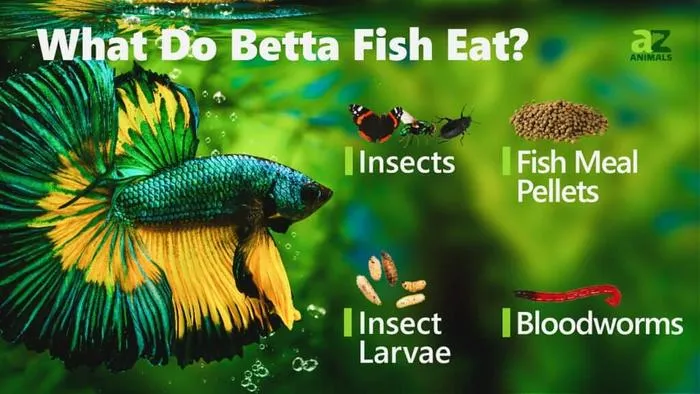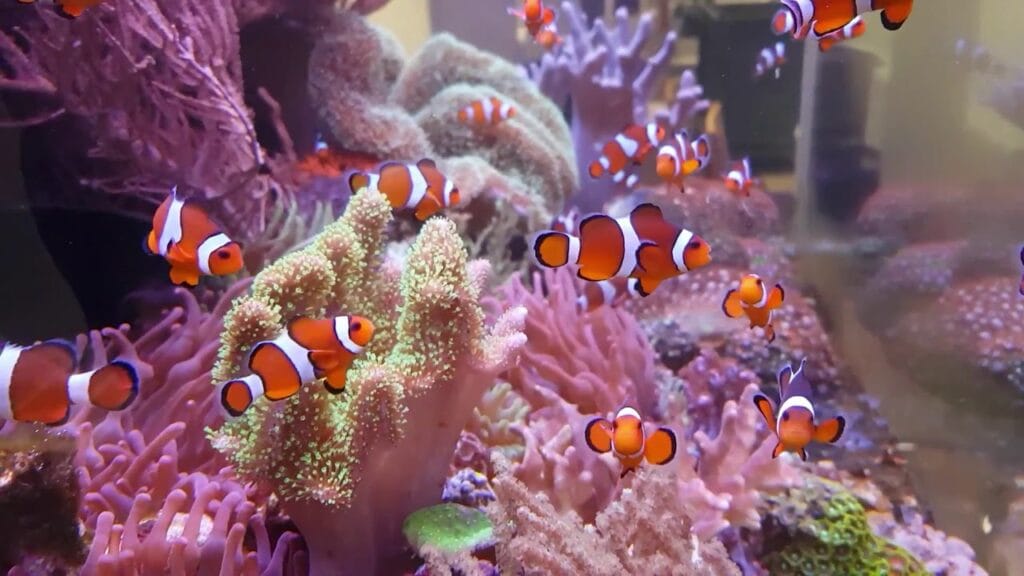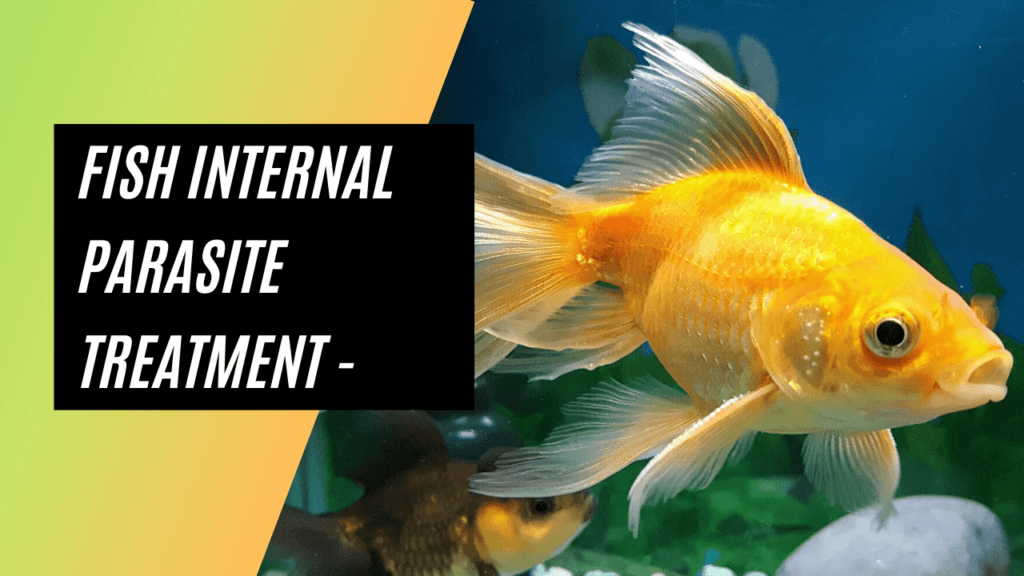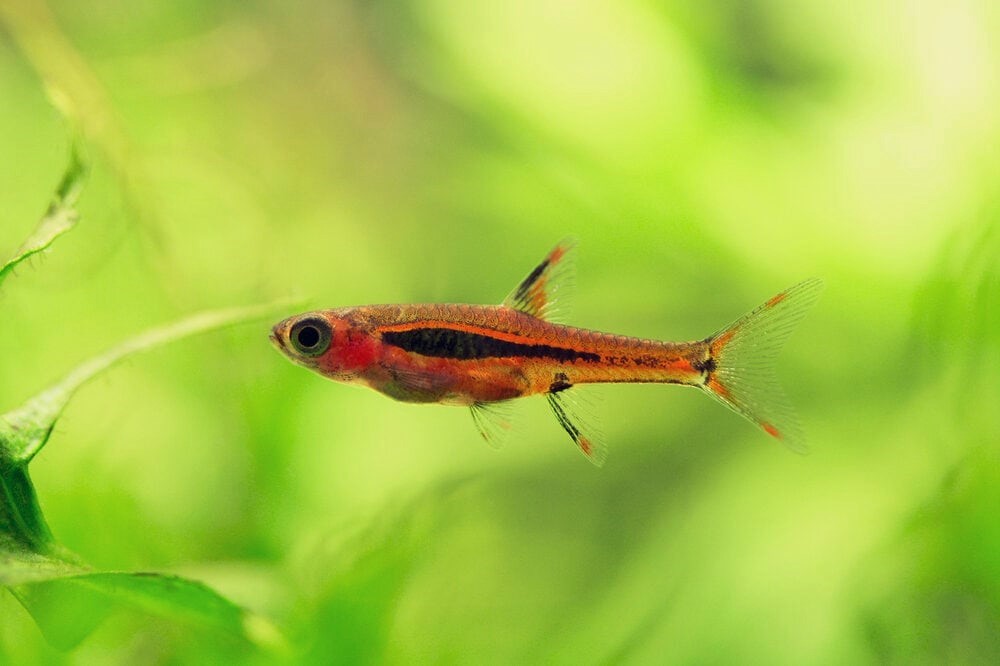If you find Betta fish not eating, there are several reasons to look. Betta fish is incredible aquarium fish. They have a unique appearance due to beautiful colored fins. Betta fish eating behavior can change, and they won’t eat, being extremely sensitive to the minor changes in their routine.
Any drastic change in eating habits of Betta fish can concern you. You might think, why won’t my Betta fish eat? We will cover certain factors in this article about Betta fish feeding and things to raise a healthy Betta in best Betta Fish tanks.
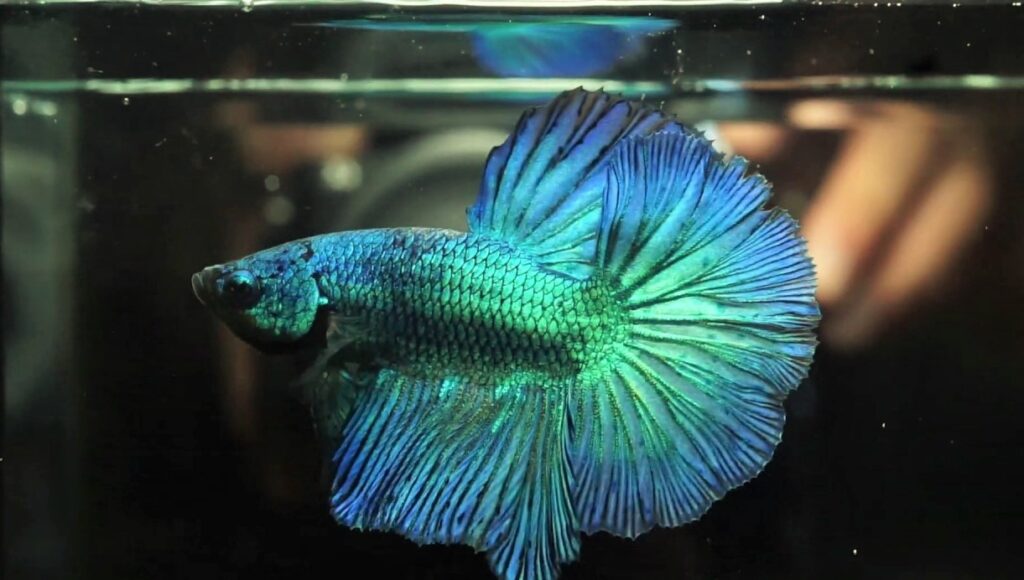
Possible Reason Why Betta Fish Not Eating
Before jumping to a conclusion about Betta not eating, you need to find the root cause of the problem. It is straightforward to analyze the possible ways but observing the Betta fish behavior is the key.
An erratic eating routine may be linked with food, environment, stress, water quality, and illness. Let’s discuss the possible reasons for Betta fish irregular eating patterns and how to cure them.
1) A New Guest in Aquarium
Betta fish are susceptible to the environment’s change, especially when they come to a new aquarium. Even for a healthy Betta fish, it is common not to eat in a new environment. They get stressed and show no sign of hunger.
Bringing a new Betta to the aquarium needs supreme care. Always prefer to buy baby Betta from the shop over the shipping option. This choice reduces the chance of your fish going into the no-eating behavior.
Let the thing settle down on their own, and don’t force Betta fish to eat if he seem stressed from the new environment. It is common to refuse the feed and get into stress in the new aquarium.
Try to minimize the lighting and, if possible, turn it off entirely for a couple of days. If they refuse to eat, then remove the food from the aquarium after 10-15 minutes. Try to set a routine of feeding Betta fish in the morning and evening.
Best Feeding Diet Plan for Clownfish in an Aquarium?
2) A Feed Not Worth Eating
Betta fishes are very smart, and they are selective in their food. A Betta won’t eat food that they dislike. This is the reason for them not to eat. They refuse to eat inferior quality feed. Mostly Betta fish don’t eat pellets, so avoid them feeding these low nutritional value foods.
They don’t tolerate any feed with unpleasant taste and smell. Over the time, fish might get used to them, but it is rare. Betta fish only eat what they feel delicious. Any introduction of a new type of feed can result in no eating behavior.
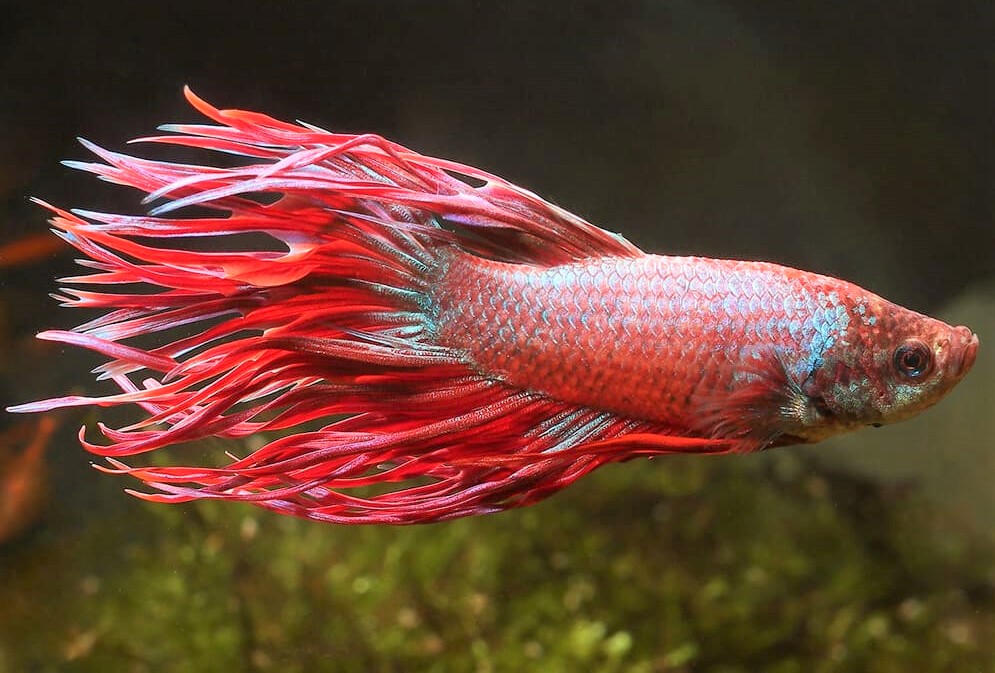
Another reason why Betta fish is not eating is expired food. Any expired feed is toxic for fish and can result in severe consequences. Betta doesn’t like expired food because of its taste; once the shelf life is over, taste changes.
If you are keeping fish for a considerable time, then you must know the solution. Try to avoid giving any food that Betta fish don’t like. Always give fresh and healthy food to avoid any inconvenience.
Focus on Betta’s behavior and avoid low-grade food like pellets. Be sure to check the expiry of the food and do not feed frozen or processed food. You can give these food to daphnia, shrimps, krill, clam, squid, Mysis, worms, etc.
3) Overfeeding
In the aquarium, betta do not have much activity, and they usually need less feed. They have small stomach and require a limited amount of food supply. Keep an eye on their routine, and don’t overfeed them.
Betta fish have issues with the digestive systems, and feeding too much can result in illness and disease. They have an appetite that need frequent feeding rather than focusing on quantity.
You might be thinking that How much to feed a Betta fish? Well, there is no gauge besides your personal experience. Feed them in small portions and monitor how much they can eat in one go.
Betta fish eats the remaining food in the aquarium. Watch for the growth periods and manage the food accordingly. Try to set a routine in the feeding to improve their intake and deal with the overfeeding issues.
4) Water Quality
Toxic components can gather in the aquarium and need a regular water replacement. It is expected that betta fish in the aquarium shows erratic behavior and refuse to eat.
Water in the aquarium can build up nitrate, ammonia, nitrite, and food leftovers that can rise in concentration with time.
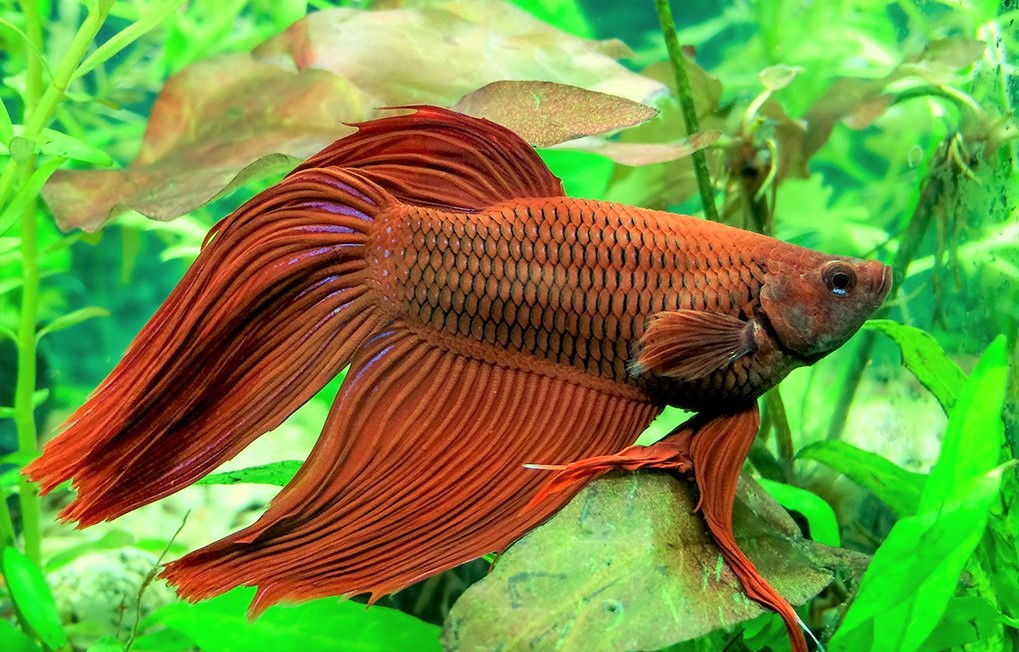
Ammonia, nitrate and toxic substance can significantly affect aquarium fishes. It’s affects include lack of appetite, gill discoloration, ragged fins, gill bleeding, and lying on either top or bottom of the fish tank.
Make sure to replace aquarium water regularly. Keep strips and water testing kits at your disposal. These tools help you monitor the water’s toxic levels and let you know when to change the water. So next time when you observe your Betta fish not eating, first check the water quality of Betta Sorority Tank.
5) Temperature
Most fish tanks have a regulated temperature. All the fishes are sensitive to the change in temperature and require a range of temperature according to their need.
Betta fish stop eating by any disturbance in the temperature of the tank. They cannot tolerate excessive hot or cold temperatures. Betta fish rely on optimal conditions as they cannot regulate their body temperature according to the environment.
Keep eyes on the drastic temperature changes in the tank. A temperature of 25-26 Celsius (78 to 80 Fahrenheit) is ideal for rising Betta fish. The lower minimum temperature should be around 23 Celsius (74 degrees Fahrenheit); otherwise, Betta fish won’t thrive.
The highest temperature should be around 30 degrees Celsius (86 degrees Fahrenheit), and more than that can affect the Betta fish’s health.
Related Post: Best Betta Fish Tank Mates for 5 Gallon
6) Stress
Betta fish stops eating in the event of any stress. There are different stresses, including stress from water change, a new mate in the tank, changing the aquarium, and excessive lighting.
They get agitated and aggressive when they face any stress. A stressed Betta fish not eating anything can cause real concerns.
Clean the tank regularly and make sure to remove all food debris from the bottom. When changing the water, maintain the water temperature before putting the fish back.
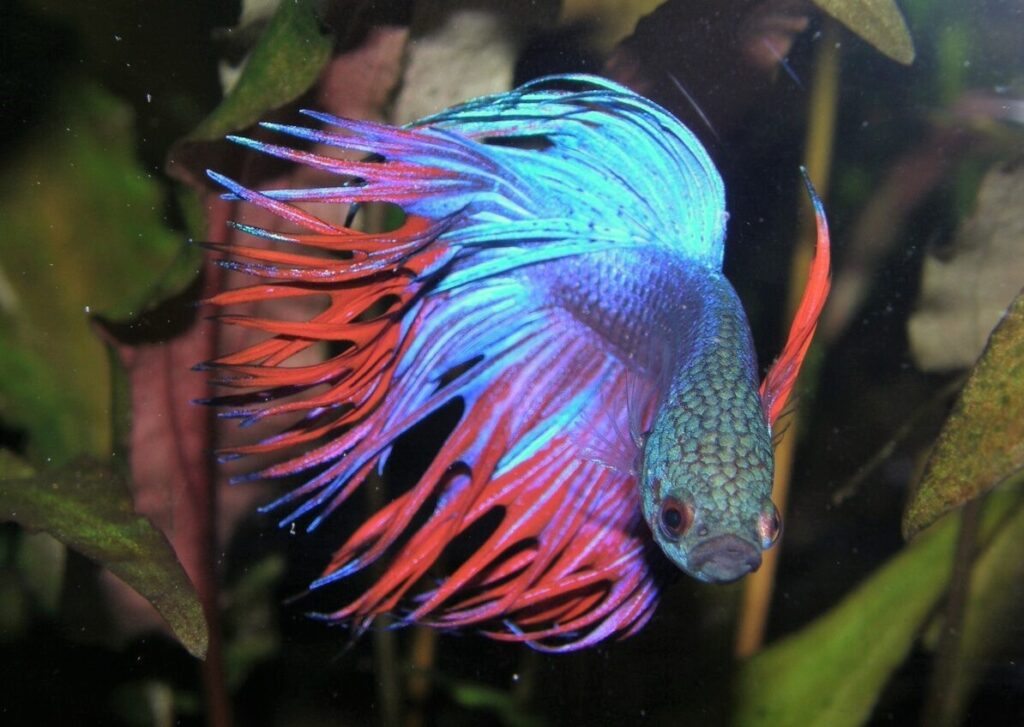
Stressed Betta usually takes time to get back to a routine. And to speed up this process, be patient and continue to feed on a regular pattern. It will help them to normalize themselves with the environment and understand the feeding pattern.
7) Sickness 🤧🤮
If you have tried everything about Betta fish not eating, then there is the possibility of a disease. You should pay attention to any prevailing symptoms.
Betta fish shows certain illnesses, including loss of color, swollen stomach, body heaviness, less movement, parasites, fungi, scratched body fins, and Swim Bladder Disease.
Most of the fish keepers do not understand the diseases in Betta fish. Sometimes they suffer from constipation that can prove fatal.
In these diseases, always contact the vet and make an appointment as early as possible. Constipation can result in killing the Betta, so try giving them recommended laxatives to cure.
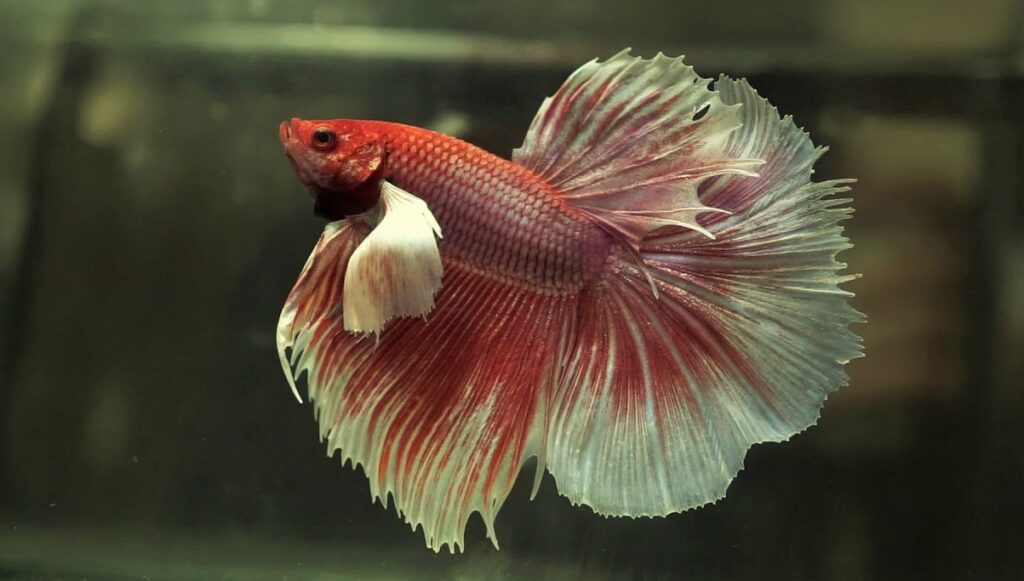
Betta Bubble Nest
Making a cluster of water bubbles and guarding them are characters of male Betta waiting for female fish to spawn. Sometimes they get occupied to the extent that they refuse to eat.
Making a bubble nest is typical behavior of the male Betta fish. They will guard the bubble nest till the spawn of female fish. The behavior lets them live and survive long hours without eating anything.
It is better to find a suitable female and remove the bubble nest. Finding a Betta female is not tricky, but it will certainly concern you if you are new to this hobby. Get the female fish from a trusted breeder to avoid any inconvenience.
How To Keep Betta Fish Happy
There are certain things that you can adopt to keep your Betta fish happy. These are the general recommendation and may vary according to your need.
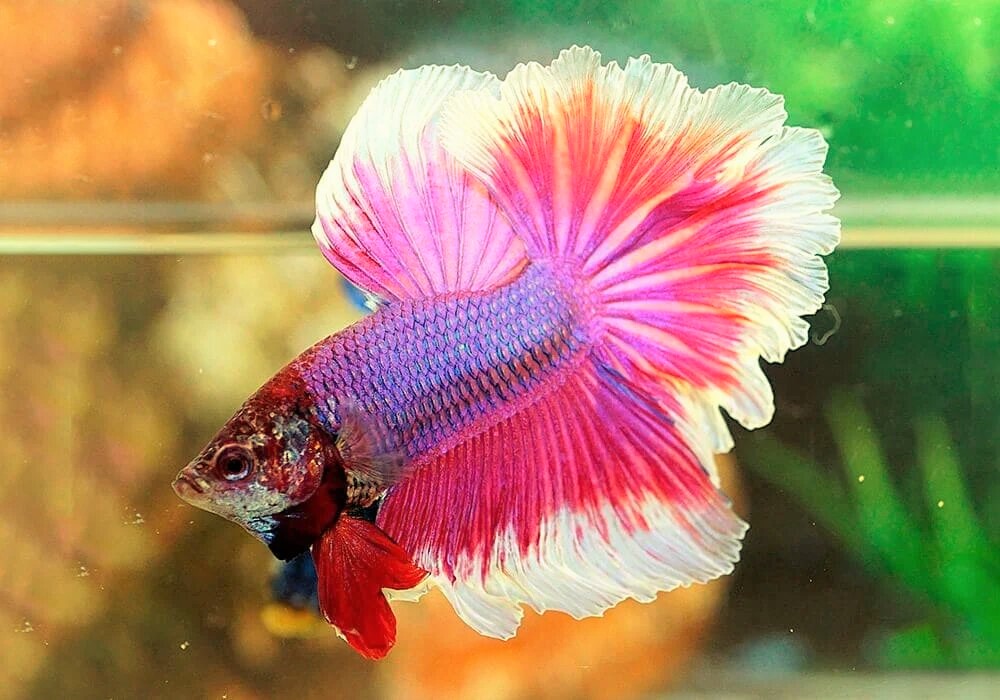
- If your Betta fish is not eating and not responding to the regular feed, try to give various foods. In this way, they get used to the different food items and eat everything with interest.
- Breeders on the shops feed Betta with frozen items that make it they are go-to food item. If your Betta fish eats such food, then always keep it in water for some time to let its temperature drop to normal.
- Juvenile Betta fish only prefer eating live food. Sometimes this can cause severe issues if you do not have access to the required food item. For such cases, try to feed them other food items until they start to feed.
- Newly bought Betta fish not eating well. It can be a serious concern. Let them stay in lights off condition for a couple of days and let their stress level dropdown.
- Betta fish are sensitive to the food quality and can sense expired items. Always look before feeding them for the expiry of the food. Otherwise, toxic materials can damage their health.
- Avoid overfeeding the fish to maintain their appetite. If you put extra food in the tank, then watch for it and put the right amount.
- Accumulation of nitrate and ammonia in the tank is a serious issue. Avoid it by replacing the water with regular intervals. You can use instruments or strips to test the ammonia level in the water.
- Temperature significantly affects Betta fish growth and appetite. Monitor the temperature regularly and avoid excessive hot or cold temperatures.
- Male Betta fish needs a female mate, and make bubble nests for spawning the female. Get a female from an experienced breeder with records.
There is not a single straightforward reason for Betta fish not eating the food. Particular food-related, environmental, behavioral, and diseases related issues can affect the eating pattern of Betta fish. Continuously monitor the activities and keep an eye on their behavior and eating frequency. If the situation does not get any better, then contact the Vet for an appointment.
Final Thoughts
